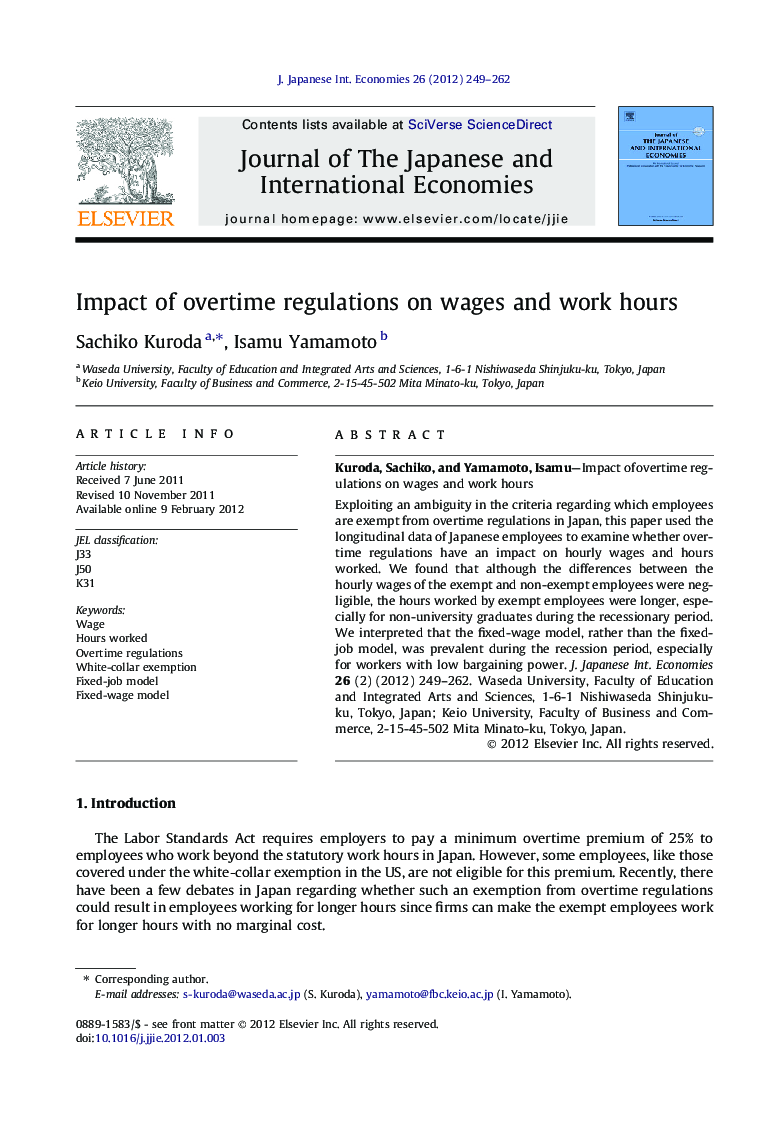| Article ID | Journal | Published Year | Pages | File Type |
|---|---|---|---|---|
| 964545 | Journal of the Japanese and International Economies | 2012 | 14 Pages |
Exploiting an ambiguity in the criteria regarding which employees are exempt from overtime regulations in Japan, this paper used the longitudinal data of Japanese employees to examine whether overtime regulations have an impact on hourly wages and hours worked. We found that although the differences between the hourly wages of the exempt and non-exempt employees were negligible, the hours worked by exempt employees were longer, especially for non-university graduates during the recessionary period. We interpreted that the fixed-wage model, rather than the fixed-job model, was prevalent during the recession period, especially for workers with low bargaining power.
► We examine an impact of overtime regulations on hourly wages and work hours. ► There is an ambiguity in the criteria for exemption from the regulations in Japan. ► The exempt workers’ hourly wages are not different from non-exempt workers. ► The exempt workers’ work hours are longer especially for the recessionary period. ► The labor demand model, rather than the fixed-job model, seems to be prevalent.
